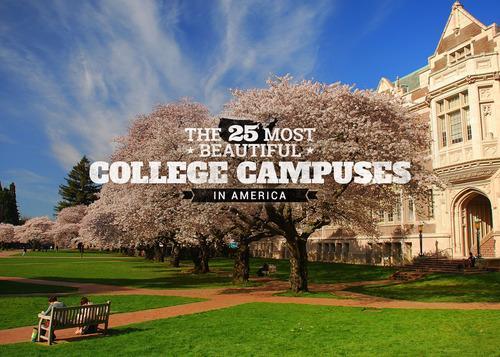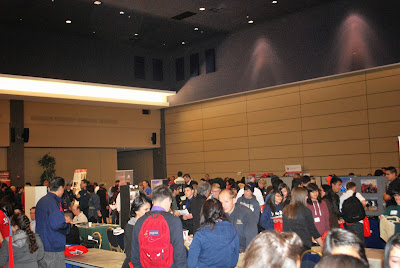Link to article:
http://time.com/70430/this-is-googles-dead-simple-formula-for-a-perfect-resume/
By Victor Luckerson
For soon-to-be college graduates or anyone else currently on the job hunt, Google’s head of human resources has some advice for impressing potential employers. Laszlo Bock, who oversees the hiring of 100 new Google employees each week, offered some more morsels of wisdom to the New York Times’ Thomas Friedman this weekend (a conversation earlier this year between Bock and Friedman touched on the same topic). Here’s a quick breakdown of his key insights.
Be specific on resumes: Bock points out that many people’s resumes are overly vague. Instead a resume should offer specific details about a worker’s job experience that help contextualize his accomplishments. Bock explains: “Most people would write a résumé like this: ‘Wrote editorials for The New York Times.’ Better would be to say: ‘Had 50 op-eds published compared to average of 6 by most op-ed [writers] as a result of providing deep insight into the following area for three years.’”
Choose hard courses over straight A’s: Bock says a lower grade in a more challenging course can be more impressive to employers than a stellar performance in an easier class. He said a B in computer science could be more significant than an A+ in English “because it signals a rigor in your thinking and a more challenging course load.”
Explain your thought process in job interviews: Much like resumes, Bock says that specificity here is important. Employers want to know how a potential worker thinks to see whether they will be good at solving problems on the job. He recommends using this structure to explain your experiences to an employer: “What you want to do is say: ‘Here’s the attribute I’m going to demonstrate; here’s the story demonstrating it; here’s how that story demonstrated that attribute.’ ” Using this method shows a worker’s ability to think logically and evaluate their own performance in a critical way.
How to Get a Job at Google
Link:
http://nyti.ms/1hXL3IS
By Thomas L. Friedman
MOUNTAIN VIEW, Calif. — HOW’S my kid going to get a job? There are few questions I hear more often than that one. In February, I interviewed Laszlo Bock, who is in charge of all hiring at Google — about 100 new hires a week — to try to understand what an employer like Google was looking for and why it was increasingly ready to hire people with no college degrees. Bock’s remarks generated a lot of reader response, particularly his point that prospective bosses today care less about what you know or where you learned it — the Google machine knows everything now — than what value you can create with what you know. With graduations approaching, I went back to Google to ask Bock to share his best advice for job-seekers anywhere, not just at Google. Here is a condensed version of our conversations:
You’re not saying college education is worthless?
“My belief is not that one shouldn’t go to college,” said Bock. It is that among 18- to 22-year-olds — or people returning to school years later — “most don’t put enough thought into why they’re going, and what they want to get out of it.” Of course, we want an informed citizenry, where everyone has a baseline of knowledge from which to build skills. That is a social good. But, he added, don’t just go to college because you think it is the right thing to do and that any bachelor’s degree will suffice. “The first and most important thing is to be explicit and willful in making the decisions about what you want to get out of this investment in your education.” It’s a huge investment of time, effort and money and people should think “incredibly hard about what they’re getting in return.”
Once there, said Bock, make sure that you’re getting out of it not only a broadening of your knowledge but skills that will be valued in today’s workplace. Your college degree is not a proxy anymore for having the skills or traits to do any job.
What are those traits? One is grit, he said. Shuffling through résumés of some of Google’s 100 hires that week, Bock explained: “I was on campus speaking to a student who was a computer science and math double major, who was thinking of shifting to an economics major because the computer science courses were too difficult. I told that student they are much better off being a B student in computer science than an A+ student in English because it signals a rigor in your thinking and a more challenging course load. That student will be one of our interns this summer.”
Or, he added, think of this headline from The Wall Street Journal in 2011: “Students Pick Easier Majors Despite Less Pay.” This was an article about a student who switched from electrical and computer engineering to a major in psychology. She said she just found the former too difficult and would focus instead on a career in public relations and human resources. “I think this student was making a mistake,” said Bock, even if it meant lower grades. “She was moving out of a major where she would have been differentiated in the labor force” and “out of classes that would have made her better qualified for other jobs because of the training.”
This is key for Bock because the first thing Google looks for “is general cognitive ability — the ability to learn things and solve problems,” he said. In that vein, “a knowledge set that will be invaluable is the ability to understand and apply information — so, basic computer science skills. I’m not saying you have to be some terrific coder, but to just understand how [these] things work you have to be able to think in a formal and logical and structured way.” But that kind of thinking doesn’t have to come from a computer science degree. “I took statistics at business school, and it was transformative for my career. Analytical training gives you a skill set that differentiates you from most people in the labor market.”
A lot of work, he added, is no longer tied to location. “So if you want your job tied to where you are, you need to be: A) quite good at it; and B) you need to be very adaptable so that you have a baseline skill set that allows you to be a call center operator today and tomorrow be able to interpret MRI scans. To have built the skill set that allows you to do both things requires a baseline capability that’s analytical.”
Well, what about creativity?
Bock: “Humans are by nature creative beings, but not by nature logical, structured-thinking beings. Those are skills you have to learn. One of the things that makes people more effective is if you can do both. ... If you’re great on both attributes, you’ll have a lot more options. If you have just one, that’s fine, too.” But a lot fewer people have this kind of structured thought process and creativity.
Are the liberal arts still important?
They are “phenomenally important,” he said, especially when you combine them with other disciplines. “Ten years ago behavioral economics was rarely referenced. But [then] you apply social science to economics and suddenly there’s this whole new field. I think a lot about how the most interesting things are happening at the intersection of two fields. To pursue that, you need expertise in both fields. You have to understand economics and psychology or statistics and physics [and] bring them together. You need some people who are holistic thinkers and have liberal arts backgrounds and some who are deep functional experts. Building that balance is hard, but that’s where you end up building great societies, great organizations.”
How do you write a good résumé?
“The key,” he said, “is to frame your strengths as: ‘I accomplished X, relative to Y, by doing Z.’ Most people would write a résumé like this: ‘Wrote editorials for The New York Times.’ Better would be to say: ‘Had 50 op-eds published compared to average of 6 by most op-ed [writers] as a result of providing deep insight into the following area for three years.’ Most people don’t put the right content on their résumés.”
What’s your best advice for job interviews?
“What you want to do is say: ‘Here’s the attribute I’m going to demonstrate; here’s the story demonstrating it; here’s how that story demonstrated that attribute.’ ” And here is how it can create value. “Most people in an interview don’t make explicit their thought process behind how or why they did something and, even if they are able to come up with a compelling story, they are unable to explain their thought process.”
For parents, new grads and those too long out of work, I hope some of this helps.





